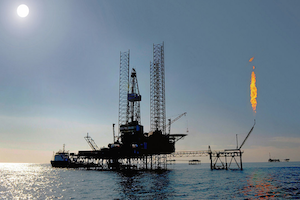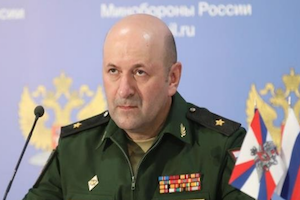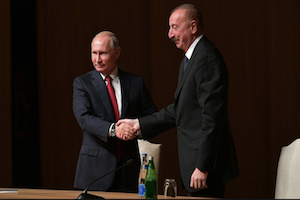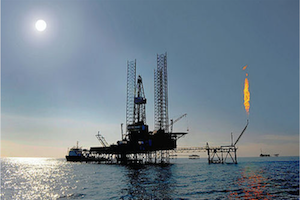Thinking Big About Caspian Energy
By Stephen Blank
November 29, 2018, the CACI Analyst
The signing of the Caspian convention in August 2018 has opened up exciting new possibilities for getting Central Asian oil and gas to European and global markets. The long-desired Southern Gas Corridor (SGC) from both shores of the Caspian has thus become a possibility. By thinking big, we can use Caspian gas for beneficial economic and political purposes. Whatever route Caspian energy takes to Europe, it must traverse the Caucasus and can be of substantial value in transforming the Eurasian geopolitical scene and agenda. Specifically, those parties who have the most to gain form resolving the Nagorno-Karabakh conflict can now devise a peace program that incorporates the use of energy to help foster an enduring peace between Armenia and Azerbaijan, reduce Russia’s ability to manipulate this conflict, and at the same time enrich them both as well as European consumers.

Russa's "Biological" Information Operation Against the US and Georgia
By Nurlan Aliyev
November 27, 2018, the CACI Analyst
During a press conference in Moscow on October 4, 2018, Major General Igor Kirillov, commander of Russia’s radiological, chemical and biological defense troops, stated that 73 citizens of Georgia had died as a result of medical experiments conducted by a company owned by former U.S. Secretary of Defense Donald Rumsfeld. He referred to recent accusations from Georgia’s former Minister of State Security Igor Giorgadze, who served in the KGB from the 1970s to the 1990s and holds the title “Honorary Officer of the KGB of the USSR.” Kirillov’s statement coincided with allegations from the UK and the Netherlands that Russian spies attempted to hack the Organisation for the Prohibition of Chemical Weapons (OPCW) in The Hague.

Discontent with Kadyrov Leads to Increased Violence in Chechnya
By Emil A. Souleimanov and Huseyn Aliyev
October 23, 2018, the CACI Analyst
On August 20, a series of attacks by teenagers against policemen took place in Chechnya’s cities of Grozny and Shali. The country’s strongman Ramzan Kadyrov quickly blamed “external actors” seeking to pitch local security enforcement, siloviki, against teenagers, while decrying the inability of the attackers’ parents to oversee their sons. Yet realities on the ground appears to be different. In fact, large part of the Chechen population hold enormous grievances caused by the impunity of local siloviki, particularly kadyrovtsy, and the republican authorities in general. The threat of punishment against the relatives of insurgents and their (prospective) supporters has since the early 2000s stemmed the local insurgency. Yet from time to time, grievances condensed in the Chechen population explode in spontaneous acts of nearly-suicidal violence against republican law enforcement.

What Would Membership in the CSTO Mean for Azerbaijan and the South Caucasus?
By Fuad Shahbazov
October 18, 2018, the CACI Analyst
On August 16, the Azerbaijani MP and head of the Azerbaijan-Russia interparliamentary group Ali Huseynli told local media that “It would be advisable to consider Azerbaijan’s participation in the Collective Security Treaty Organization” (CSTO). The sensational statement triggered a public discussion on Azerbaijan’s possible membership in the Russia-led CSTO and its consequences for the region. While some state officials described this prospect as a logical extension of Baku’s cooperation with Moscow, others strictly opposed the idea, stating that it would pose dangerous challenges to the country.

The Perspective of Trans-Caspian Gas Flow to Europe
By Ilgar Gurbanov
October 25, 2018, the CACI Analyst
On August 12, Azerbaijan, Kazakhstan, Russia, Iran, and Turkmenistan signed the Convention on the Caspian Sea’s Legal Status in Astana. The Convention’s provision endorsing the construction of a subsea pipeline raised optimism regarding the Trans-Caspian Gas Pipeline (TCGP) project, which has been stalled due to the Caspian’s uncertain status. Discussions on the TCGP have been ongoing since the 1990s, envisaging the export of 30 billion cubic meters/year (bcm/y) of Turkmen gas to Europe across the Caspian by integrating with the Southern Gas Corridor (SGC).






 Book S. Frederick Starr and Svante E. Cornell,
Book S. Frederick Starr and Svante E. Cornell,